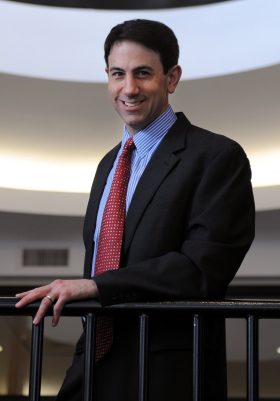Elon Law Professor Tom Molony presented at a Nov. 7-8 symposium of Washington and Lee University School of Law.

“Forty years after Roe v. Wade, State legislatures continue to try to chip away at a woman’s right to choose. In a flurry of recent activity, lawmakers across the country have considered and, in some cases, adopted sweeping measures that range from expanded clinic safety regulations to outright bans on abortion early in pregnancy if a fetal heartbeat can be detected. Several States have banned sex-selection abortions—abortions sought based on the sex of the fetus. These narrow bans are designed to advance society’s interest in eradicating sex discrimination, an interest the Supreme Court has not considered in the abortion context but elsewhere has described as compelling. Sex-selection abortion bans, therefore, test in a new way the limits of State regulation.
“To survive constitutional challenge, a sex-selection abortion ban must satisfy the requirements established in Planned Parenthood of Southeastern Pennsylvania v. Casey. Casey, while retaining Roe’s “central holding” that a woman has the right to choose abortion before the fetus is viable, fundamentally changed the constitutional landscape by granting States greater latitude to regulate abortion pre-viability. Under Casey, States may adopt reasonable pre-viability regulations that do not impose an undue burden on the woman’s right and may restrict abortion post-viability so long as exceptions apply when the procedure is necessary to protect the life or health of the woman.
“Recent federal court decisions suggest that Casey leaves no room for a pre-viability ban of any sort. Under these precedents, sex-selection abortion bans, which typically apply throughout pregnancy, would seem destined to fail. A careful reading of Roe and Casey, however, reveals a less certain destiny. While recognizing the barriers Casey presents for sex-selection abortion bans, this Article offers an argument as to how a narrowly drafted ban might survive a challenge under Casey. The Article also evaluates the bans currently in place or that have been proposed and offers suggestions for improvement, including recommendations as to how the bans might be modified to fit more safely within the parameters the Court has established.”
More information about the Washington and Lee University School of Law symposium is available here.
More information about Elon Law Professor Tom Molony is available here.


